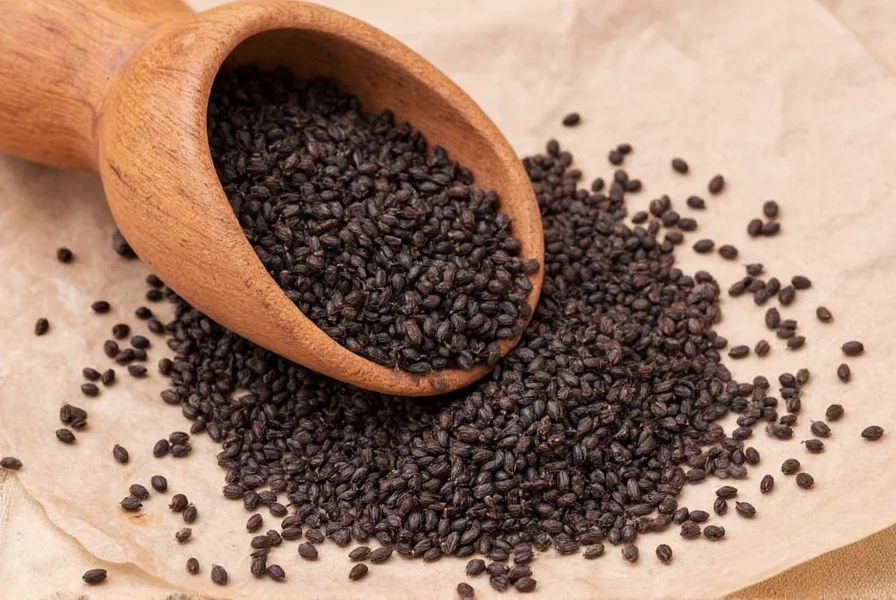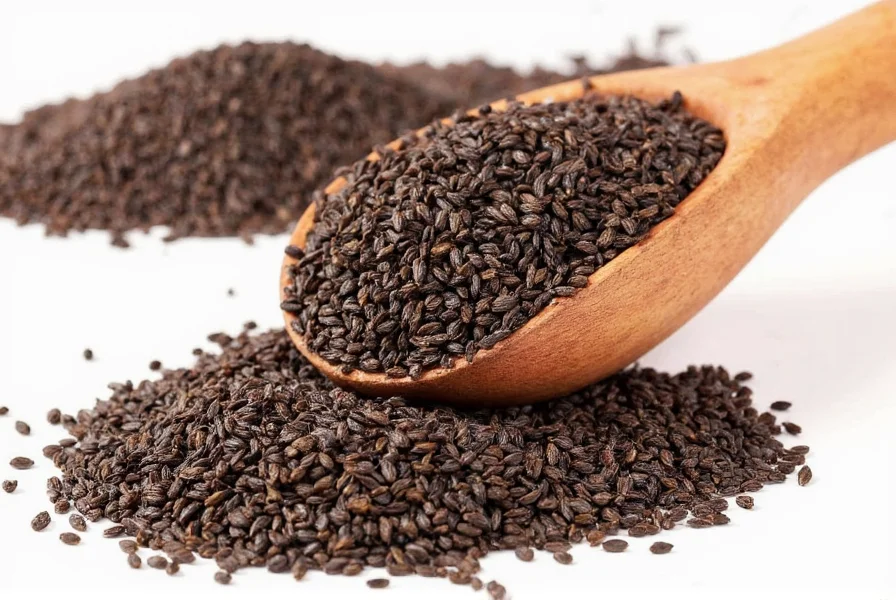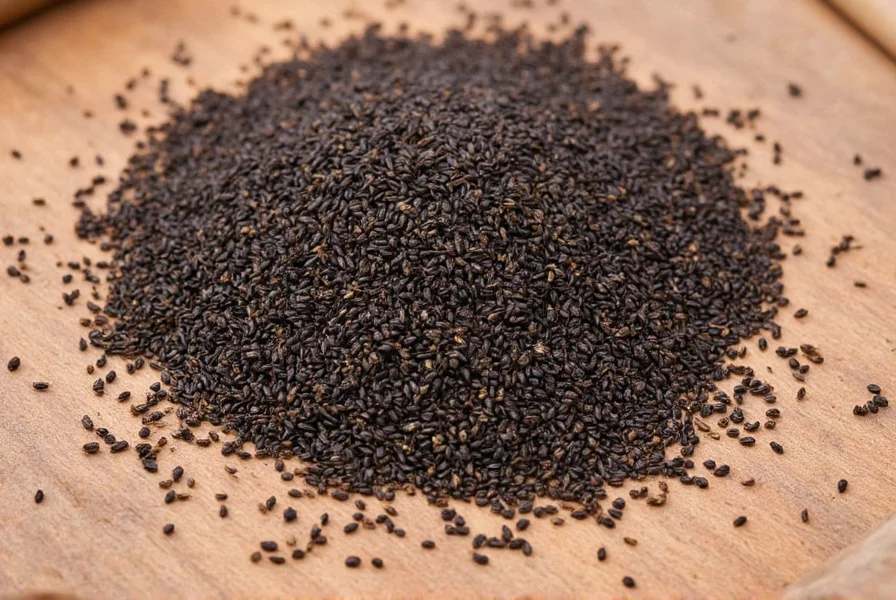If you're searching for black cumin seeds near me, you're likely looking for immediate access to this popular medicinal spice. Black cumin seeds, also known as Nigella sativa or kalonji, have been used for centuries in traditional medicine and cooking across Middle Eastern, South Asian, and Mediterranean cultures. Unlike regular cumin (Cuminum cyminum), black cumin seeds come from a different plant and offer distinct health benefits and flavor profiles.
Where to Find Black Cumin Seeds Locally
When searching for black cumin seeds near my location, focus on these specific store types that consistently carry this specialty item:
| Store Type | Where to Look | Price Range (per ounce) | Quality Indicators |
|---|---|---|---|
| Health Food Stores | Spice aisle or bulk bins | $2.50-$4.00 | Organic certification, recent packaging date |
| Middle Eastern Markets | Spice section or bulk containers | $1.50-$2.50 | Fragrant aroma, uniform black color |
| Indian/Pakistani Grocers | Labeled as "kalonji" in spice area | $1.00-$2.00 | Freshly stocked, no moisture in packaging |
| Major Supermarkets | International or organic sections | $3.00-$5.00 | Reputable brand names, sealed packaging |
How to Identify Quality Black Cumin Seeds
When you've found black cumin seeds near me at a local store, use these practical tips to ensure you're getting quality product:
Examine the seeds closely—they should be matte black with a triangular cross-section, approximately 2-3mm in length. High-quality seeds have a distinctive aroma reminiscent of oregano with subtle onion notes. Avoid seeds that appear shiny (indicating age or improper storage) or have a musty smell. Check packaging dates when available, as fresher seeds contain higher concentrations of thymoquinone, the primary active compound.
At ethnic markets, don't hesitate to ask staff about the harvest date. Many specialty stores receive regular shipments directly from growing regions. If purchasing from bulk bins, verify that the store has high turnover—seeds should flow freely without clumping, which indicates moisture exposure.

Questions to Ask When Purchasing Locally
When visiting stores for black cumin seeds near my location, these questions will help you make an informed purchase:
- "When was the last shipment received?" - Freshness significantly impacts potency
- "Is this product organic or conventionally grown?" - Important for those avoiding pesticides
- "Do you carry both whole seeds and pre-ground powder?" - Whole seeds retain potency longer
- "Where is this product sourced from?" - Seeds from Mediterranean regions often have higher oil content
Many shoppers searching where to buy black cumin seeds locally aren't aware that some stores keep specialty spices behind the counter due to lower demand. Always ask staff if you can't locate them on shelves—this applies particularly to mainstream supermarkets that may stock them but not prominently display.
What to Do If You Can't Find Them Nearby
If your search for black cumin seeds near me proves unsuccessful after checking multiple store types, consider these alternatives:
Ask the store manager if they can special order them—many independent grocers will accommodate regular customer requests. Some pharmacies with herbal medicine sections carry black seed oil, which contains concentrated benefits though it's not the same as whole seeds. As a temporary solution, regular cumin can provide similar flavor (but not identical health properties) in cooking applications.
When all local options are exhausted, reputable online retailers offer next-day shipping in many areas, but always verify they have physical storefronts you could potentially visit. The key is finding a balance between immediate access and product quality when searching for black cumin seeds availability in my area.

Understanding Black Cumin Seed Varieties
Not all black cumin seeds are created equal. When searching for local stores selling black cumin seeds, be aware of these common varieties:
Egyptian Nigella sativa typically has the highest oil content (up to 45%) and strongest aroma. Turkish varieties are slightly smaller with a more pronounced bitter note preferred in some culinary applications. Indian kalonji tends to be more affordable but may have lower thymoquinone levels. For medicinal use, look for seeds specifically labeled for therapeutic purposes rather than culinary-only varieties.
Price often correlates with quality—extremely cheap options may be old stock or mixed with lower-grade seeds. The best value usually comes from ethnic markets where cultural demand ensures regular turnover and knowledgeable staff.
Frequently Asked Questions
What's the difference between black cumin seeds and regular cumin?
Black cumin seeds (Nigella sativa) come from a different plant than regular cumin (Cuminum cyminum). They have a distinct flavor profile - earthy with subtle onion notes versus cumin's warm, spicy taste. Black cumin seeds are primarily used for medicinal purposes while regular cumin is mainly a culinary spice.
How can I verify if black cumin seeds are fresh when purchasing locally?
Fresh black cumin seeds should have a strong aromatic scent when crushed between fingers, appear matte black (not shiny), and flow freely without clumping. Check for recent packaging dates at health food stores, and at ethnic markets, ask about shipment frequency as high-turnover stores typically carry fresher product.
Which supermarket chains most commonly stock black cumin seeds?
Whole Foods, Sprouts Farmers Market, and Wegmans typically carry black cumin seeds in their spice or international sections. Some larger Kroger and Publix locations with extensive international offerings may also stock them, usually in the organic or world cuisine sections.
Are black cumin seeds available at regular pharmacies?
Some independent pharmacies with herbal medicine sections carry black cumin seeds, particularly in areas with diverse populations. Major pharmacy chains rarely stock the whole seeds but may offer black seed oil supplements. Ethnic pharmacies in Middle Eastern or South Asian neighborhoods are more reliable sources for the whole seeds.
What should I do if I can't find black cumin seeds at local stores?
Ask store managers if they can special order them, as many independent grocers will accommodate regular requests. Check behind counters at mainstream supermarkets where specialty items are sometimes kept. As alternatives, some pharmacies carry black seed oil, or you could use regular cumin for cooking (though it lacks identical health properties).











 浙公网安备
33010002000092号
浙公网安备
33010002000092号 浙B2-20120091-4
浙B2-20120091-4